By: debbie lynn elias
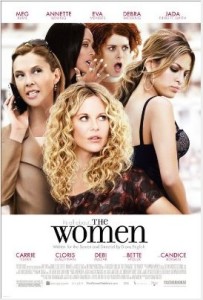
In 1939, director George Cukor, fresh from his firing as director of “Gone With The Wind” jumped from the frying pan into the fire to helm what many believed would be a film as controversial and tempestuous as Scarlett O’Hara herself, a little project called “The Women”. Based on the 1936 play by the incomparable Clare Booth Luce and written for the screen by Anita Loos, “The Women” was a poison pen letter to the back-stabbing, callous, shallow, vapid, vacuous, cat-fighting women clawing their way into marriages of society, money and social standing and particularly one, Mary Haines, who lost her husband to a husband hunting “perfume spritzer girl.” With rapier wit, a story focusing on the camaraderie of Mary and her girlfriends during her heart-wrenching trauma, and a cast boasting the likes of Joan Crawford, Rosalind Russell, Norma Shearer and Joan Fontaine, “The Women” had more than an interesting twist – there was nary a man in sight anywhere in the production. And while not one of Cukor’s favorite films, over the past 70 years “The Women” has become a classic to cinephiles and women the world over thanks to sumptuous opulence of the Art Deco era, Oscar caliber performances, dialogue so sharp as to rival the edge of a Ginzu knife and touchstones so iconic that with the mere mention of Jungle Red, Crystal Allen or Perfume Spritzer Girl one is able to get a complete picture on a situation at hand.
Fast forward to 1994 and Diane English, the voice and vision behind the television classic “Murphy Brown.” With rumors swirling of a potential remake of “The Women”, English quickly got on board to create a fresh, revitalized script that while it celebrated women, still contained no men, retained the core story of Mary Haines who discovers her husband is having an affair with perfume spritzer girl Crystal Allen, but had it’s own unique twist – shift the focus from women being devastated by break-ups with men, to a larger heartbreaker – a break-up with their best girlfriend. And now, after another 14 years, another stellar cast boasting Annette Benning, Meg Ryan, Jada Pinkett Smith, Debi Mazar, Cloris Leachman, Eva Mendes, Bette Midler and Candice Bergen pick up the mantle, dig in their claws and under English’s direction, run with it – all the way to box office gold – with the new, and dare I even say, improved, THE WOMEN.
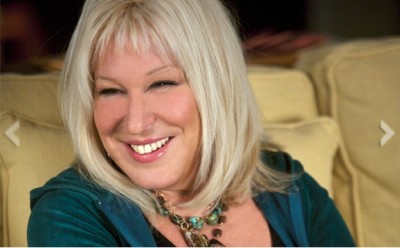
Mary Haines is a woman you would want as your best friend. Her husband Steven is a hard working Wall Street executive whose money affords Mary a self-perceived perfect life. Happy go lucky, looking at the world through rose colored glasses, everyday is sunny even as storm clouds swirl all around. Sylvie Fowler, is a hard working, happily single magazine editor who, although she is Mary’s best friend, would sell her soul – and Mary – to the devil if it meant getting ahead in the publishing world. Edie Cohen, also part of the friendship circle is your classic earth mother popping out kids right and left and mothering everyone with unbridled innocence and ditsy love. Alex Fisher, a lesbian, is Edie’s best friend and also part of the circle, is a successful outspoken and highly opinionated writer of such clout that Sylvie is continually begging her to write for her magazine to increase readership. A more tight knit group of women you would be hard pressed to find. They love and support each other through thick and thin, which is a good thing, particularly after Sylvie stops in at the Saks Fifth Avenue salon for a manicure only to have the very chatty manicurist Tanya drop a bombshell about her friend, Crystal Allen, “the perfume spritzer girl from downstairs.” Crystal is having an affair with the wealthy Steven Haines.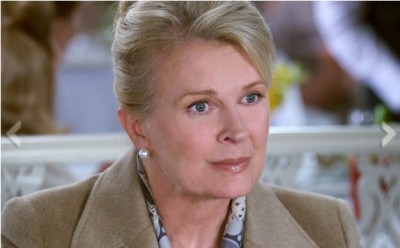
But as we girls know, a little bit of information is often a dangerous thing and can be used for good or evil, so it doesn’t take long before Sylvie has not only shared this bombshell with Edie who shares it with Alex, but then encourages Mary to stop by Saks for a manicure from Tanya, the manicurist with the Jungle Red polish. After all, she’s not going to be the one to destroy her best friend by telling her, her husband is having an affair. But while Sylvia may not want to personally destroy Mary, as we soon find out, she leaves that to the tabloids after a meeting she has with a well known writer she needs for her magazine to save her own skin.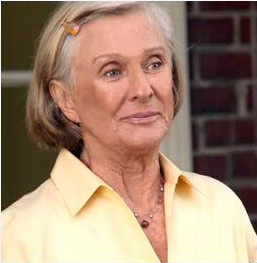
With her life in shambles, her husband gone, her best friend gone, Mary turns to her mother, her remaining friends and her devoted housekeeper Maggie for advice, comfort and guidance. Under an umbrella of great comedic aplomb, Mary soon finds not only a life filled with love and laughter, but a sense of self-worth, self-respect and the knowledge that it’s really just all about the women.
English herself admits, “This is a dream cast.” And it is. Meg Ryan returns to her roots as the girl we all know and love with her take on Mary Haines, a role originally held by Norma Shearer. Ryan is a confectionary delight of nice, be it through laughter or tears. But, she brings Mary 180 degrees providing multi-textured nuances of character and strength laced with a comfortable ease. Stepping into a role long associated with Rosalind Russell, Annette Benning is stellar as Sylvie Fowler. There are few actresses able to tackle rapid-fire rapier frenetic dialogue but Benning does so with a powerful vibrancy, making the role her own and commanding every scene she is in. She is dazzling. Debra Messing, although here she plays Edie Cohen (Edith Potter in the 1939 film), is and always will be Grace Adler; and that’s a good thing. Once again, we see Debra with a gay/lesbian best friend, is a woman who loves food, is constantly eating and provides facial expressiveness to rival Lucille Ball. She is a joy. Jada Pinkett Smith comes on board in a character created by English just for this film, Alex Fisher. Tough and strong, Smith’s tone is a nice counter balance to the rest of the women, but then she zings us in the film’s climatic moments and surprises the heck out of you. Eva
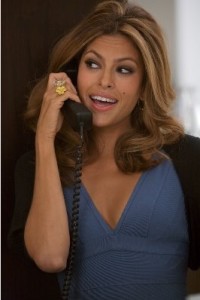 Mendes takes on the inimitable role of Crystal Allen but she makes it perfectly clear, “I am not trying to fill Joan Crawford’s shoes.” And that’s a good thing because while “she’s not a tramp, she has a trampiness about her”, something that can never be said about Crawford’s 1939 performance. Mendes brings a sluttiness to the role that feels out of place given the tenor of the rest of the film.
Mendes takes on the inimitable role of Crystal Allen but she makes it perfectly clear, “I am not trying to fill Joan Crawford’s shoes.” And that’s a good thing because while “she’s not a tramp, she has a trampiness about her”, something that can never be said about Crawford’s 1939 performance. Mendes brings a sluttiness to the role that feels out of place given the tenor of the rest of the film.
The real casting surprises and joys come in the smaller supporting roles starting with Debi Mazar.
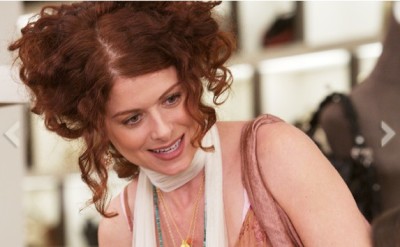 I can see no one in the business today tackling the pivotal role of manicurist Tanya but for Mazar. A cross between Judy Holliday and Eve Arden, Mazar’s Tanya is the catalyst that spins Mary’s world into a downward spiral. First approached by English 14 years ago, I don’t think there was anyone more surprised than her to be handed the part now out of the blue. Her energy, enthusiasm, Brooklyn persona and prior real-life experience as a cosmetologist radiate on screen. Cloris Leachman’s Maggie is an absolute love. She is the grandmotherly housekeeper we all need in our lives. At 82, her comedic timing is still impeccable and she exudes a love and caring to all around her. Candice Bergen pops in as Mary’s mother and is, of course, outstanding. Bette Midler as talent agent Leah Miller may have 5 minutes on screen but those 5 minutes are dripping in comedic gold.
I can see no one in the business today tackling the pivotal role of manicurist Tanya but for Mazar. A cross between Judy Holliday and Eve Arden, Mazar’s Tanya is the catalyst that spins Mary’s world into a downward spiral. First approached by English 14 years ago, I don’t think there was anyone more surprised than her to be handed the part now out of the blue. Her energy, enthusiasm, Brooklyn persona and prior real-life experience as a cosmetologist radiate on screen. Cloris Leachman’s Maggie is an absolute love. She is the grandmotherly housekeeper we all need in our lives. At 82, her comedic timing is still impeccable and she exudes a love and caring to all around her. Candice Bergen pops in as Mary’s mother and is, of course, outstanding. Bette Midler as talent agent Leah Miller may have 5 minutes on screen but those 5 minutes are dripping in comedic gold.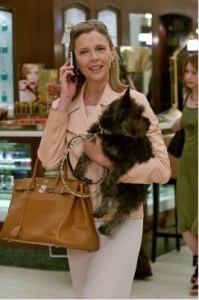
Written and directed by English (in her directorial debut) she acknowledges that this is a “beloved film to many people” thus necessitating treading carefully in these well known waters. Believing “you should never remake a movie unless you have something new to say” English made one radical change. “The big shift is that the old movie was a poison pen letter. So much has changed in almost 70 years. . .that there had to bee a key change in order to bring it into modern times. The focus now what I wanted to create was a celebration of women and to be a woman is a gift and to hold the mirror up and show us ourselves and show us a tapestry of these women. This is a valentine.” By shifting the concentration to the female friendships over the marital relationship, English brings a welcoming warmth to the film as a whole not seen in the original. Particularly important to English was preserving those “touchstones” from the original. “The old movie had great iconic scenes in it and I lifted a lot of those almost word for word so that fans of the original movie they will definitely see things, there are touchstones, that they will definitely recognize.” And trust me, you will.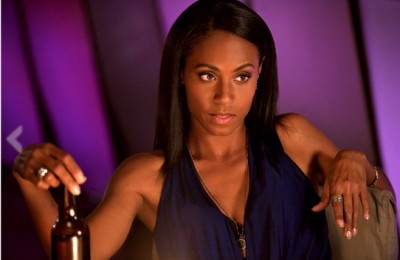
She also confesses that “as a first time director, I got a lot of help.” And a large portion came from one male, producer Mick Jagger, who fell in love with the script and according to co-producer Victoria Pearman “loves the final film.” Admittedly one of the most difficult aspects of the film was getting it to the screen at all. According to English, “One of the reasons it took as long as it did is that it is an all female cast.”
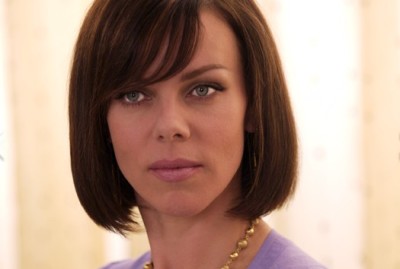
With great attention to detail, English has an opening montage to tickle the fancies of women (and men) everywhere. And only two worlds are needed to set the stage for you – Manolo Blahnik. I bow to the talents exhibited here by production designer Jane Musky and costume designer John Dunn who retain the mystique and societal hierarchy of the original film with 21st century design in set and clothing while capturing the individuality of each character and setting. Tia Nolan’s editing, particularly in that opening montage, are as clean and sharp as English’s script.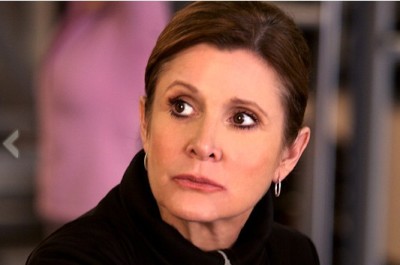
Not one high on remakes, I am more than impressed with THE WOMEN. From Diane English to a glittering cast to rival MGM’s original galaxy of stars, this is a film not to be missed by men or women. As opined by English, “If you give women something of themselves on screen that is meaningful they will come and they will come in big numbers.” It has long been said about men, you can’t live with them, you can’t live without them. Well, let me tell you, the shoe is now on the other foot. It’s all about THE WOMEN. You can’t live without women or THE WOMEN.
Mary Haines – Meg Ryan
Sylvia Fowler – Annette Benning
Crystal Allen – Eva Mendes
Edie Cohen – Debra Messing
Alex Fisher – Jada Pinkett Smith
Maggie – Cloris Leachman
Tanya – Debi Mazar
Written and directed by Diane English. Rated PG-13.












